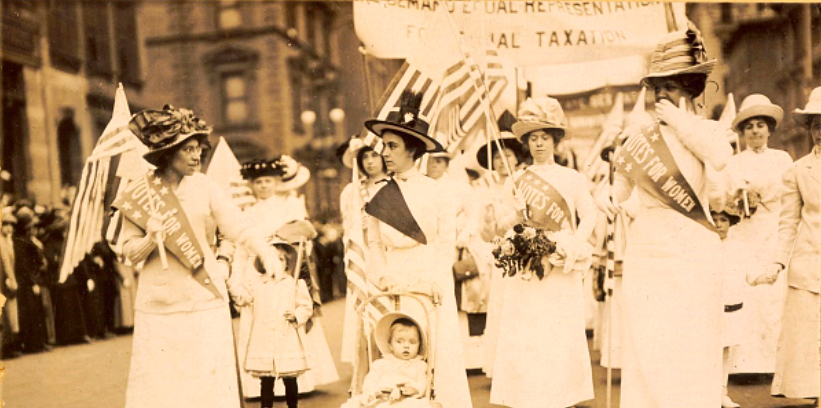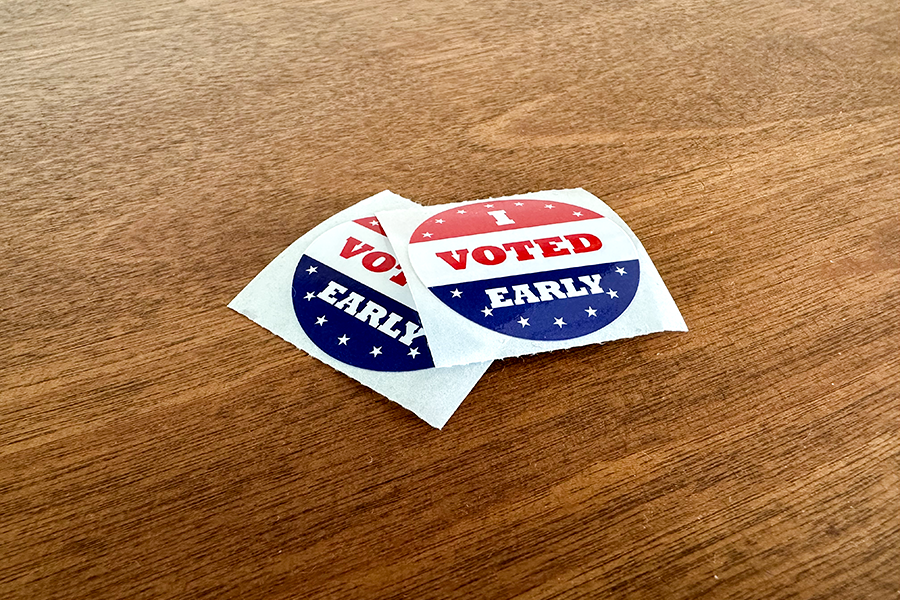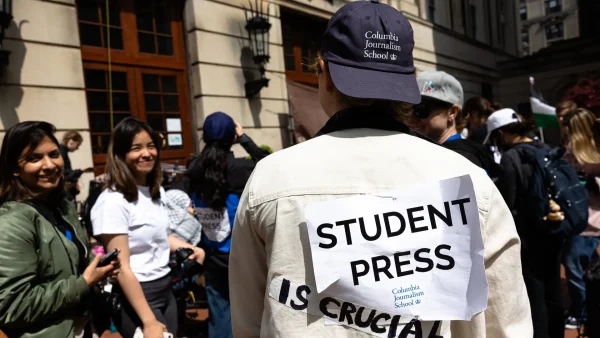An insight into intersectional feminism
May 4th, 1912, New York City suffragist parade. Racial tension is apparent in the gaze shared between two pictured suffragettes.
April 19, 2022
You are not feminists, no matter the fact that you have a Ruth Bader Ginsburg poster in your room, Emma Watson’s sexism speech saved on your phone, or even when you took Taylor’s side the moment Kanye got on that VMA stage. The truth is, you likely don’t understand what feminism is, so let’s start there.
South High is often categorized as a progressive school, but I’ve found myself constantly falling victim to ignorance held by the student and staff population. Every injustice from racism to ableism has crept its ways into our walls. I’ll start small, though I hope these upcoming statements hold weight in the deterioration of a white woman’s fragility.
In 1920, a century-long campaign advocating for women’s right to vote accomplished its main criteria. While white women freely exercised their new found place in American democracy, women of color remained victim to racism embedded in legislation. It wasn’t until 1965 that black women fully obtained the right to vote without white intimidation. Though this initial battle was won, women around the world still continue to fight for gender equality.
In 1870 tension rose in the south, the fifteenth amendment being passed granting African American Men the ¨right to vote¨ whilst women were fighting for that very right themselves. This new found controversy fueled white suffragettes and displaced them from the societal position they had above any and all black americans. Though, for a full understanding of white women’s misplaced rage, it is crucial to understand that the fifteenth amendment was far from equal. African Americans were still denied the right to vote by state constitutions and laws, poll taxes, literacy tests, the “grandfather clause,” and outright intimidation. But yes, in theory, a portion of the black population now obtained something their oppressors did not.
Astute women suffrage leaders found allyship with the deeply racist south, based upon the notion that white female votes could be used to combat and neutralize African American ones. Susan B. Anthony and Elizabeth Cady Stanton are historically recognized as prime leaders of the suffragettes. When discussing said leaders’ advocacy, Professor Lori D. Ginzberg elaborated; ¨When people talk about Stanton and women’s rights and her devotion to women, my first question is always, ‘Which women? ….Whose rights are you going to put down in the process of demanding your own?”
When educating yourself on societal issues, reading literature written by someone from the marginalized community in question is crucial. Upon my own studies I have found the black american author Rachel E. Cargle to be the most influential. In fact, a snippet from an article of hers, published by Harpers Bazaar in 2018 is my key inspiration for this piece. It quotes; ¨If the history of this movement taught us anything, it is that intersectionality in feminism is vital. We cannot forget the ways that suffragettes dismissed the voices of black women….If there is not the intentional and action based inclusion of women of color, then feminism is simply white supremacy in heels….Going up against liberal progressive white feminists who refuse to let down their guard of “ultimate liberation” to actually learn from women of color.¨
From a more personal perspective; it is important for white women to continuously acknowledge their whiteness. The understanding that your sex does not outweigh your race is an important key in such a movement. We can see historically how white women have weaponized their position in society to attack POC. Examples of this manipulation range from false assault accusations to utilizing their tears as a way to invalidate black emotion.
You cannot truly be a feminist if your feminism is not intersectional and you fail to address the obvious upper-hand you obtain. If you claim to be a feminist but fail to acknowledge your privilege; you must revaluate.







lou • Nov 6, 2023 at 1:32 pm
Great article Raza but the spacing is a little messed up…?